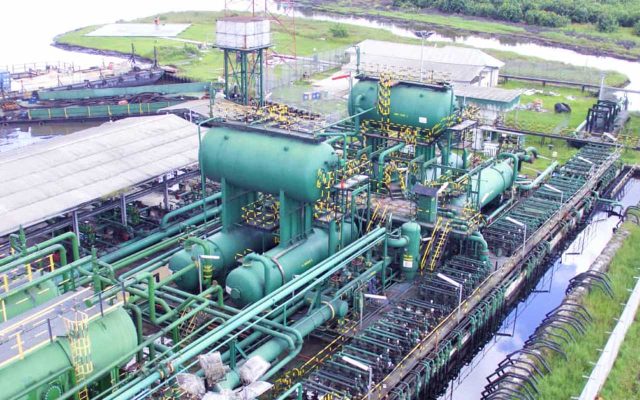Despite Nigeria’s ambition to leverage its over 200 trillion cubic feet (Tcf) of proven gas reserves to drive economic diversification and meet net-zero targets, mounting debts, unrealistic gas pricing, and policy inconsistencies threaten to derail the nation’s energy transition roadmap.
The Acting Managing Director and Gas Asset Manager of Neconde Energy Limited, Chichi Emenike, and Chairman of Geometric Power, Prof. Barth Nnaji, raised the alarm at the Oriental News Nigeria 2025 Conference held in Lagos yesterday.
Emenike disclosed that unpaid gas supplies strain the country’s gas producers and create ripple effects across the value chain.
She said: “Neconde, for instance, has gas that has been produced and supplied to the electricity generation companies (GenCos), and that has not been paid for almost two years.
“This is a serious conundrum, whereas we have sourced funds from somewhere to produce these gas molecules from our facilities. How am I going to pay back?”
Emenike noted that upstream gas operations remain overwhelmingly dollarised from well drilling to technology inputs, with production costs outpacing crude oil development.
“Don’t forget that the gas production industry is highly dollarised, including the requisite inputs. There is no part of the operation, including the technology, that is produced locally. The bulk of it has to be imported in United States dollars.
“The O&M, well drilling, and accessories to drill a gas well are all dollarised. So, it costs more than what it costs to drill a crude oil well. The handling of a gas well is highly sophisticated, unlike that of crude oil,” she said.
Emenike warned about the economic risks associated with policy instability, pointing out that over 500 million standard cubic feet (scf) of gas are being transported with the NGIC pipeline. According to her, if you multiply this figure by one dollar, you will understand the cost. She added that whereas so much money went into drilling some of these wells, it costs $35,000 plus or minus, and that is outside other assumptions of fees.
She stressed the need for a practical national gas plan targeting stranded fields and achievable short-term wins.
Emenike added that every investor wants to see a clear line of sight, noting that market forces should be allowed to play out while the government should not create a monopolistic environment that stifles investment, advising that it should allow it to have that flexibility.
Prof. Nnaji, on his part, highlighted that GenCos are struggling under an unviable pricing regime, with a regulated domestic gas price of $2.13/MMBtu, while open market rates fluctuate between $2.70 and $9/MMBtu depending on supply conditions.
He warned that the pricing gap is worsening liquidity challenges, as a result, the sector recorded a N1.1 trillion subsidy shortfall in the first half of 2025 alone, with over N5.2 trillion in legacy debts owed to GenCos by the Federal Government and Nigerian Bulk Electricity Trading Plc (NBET).







